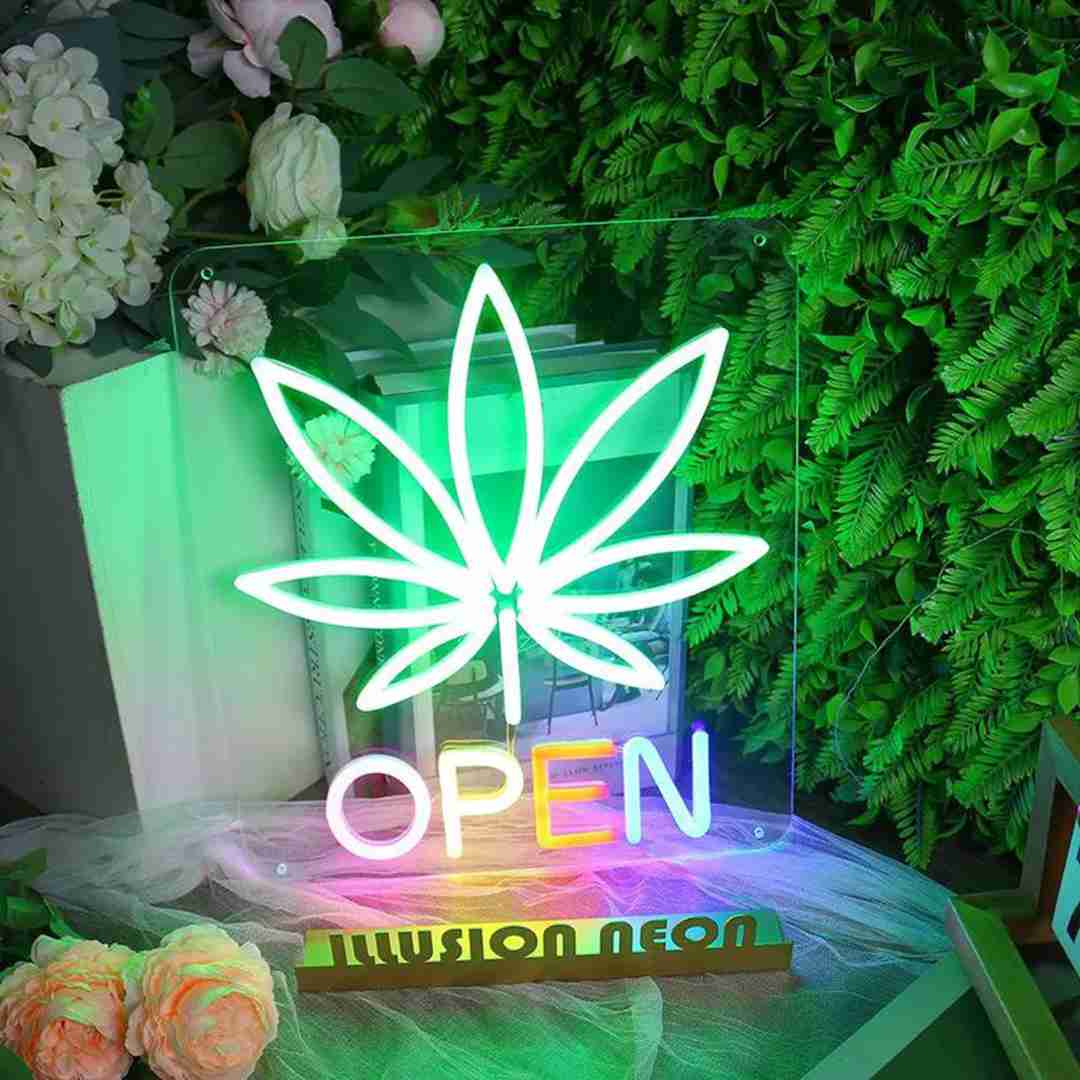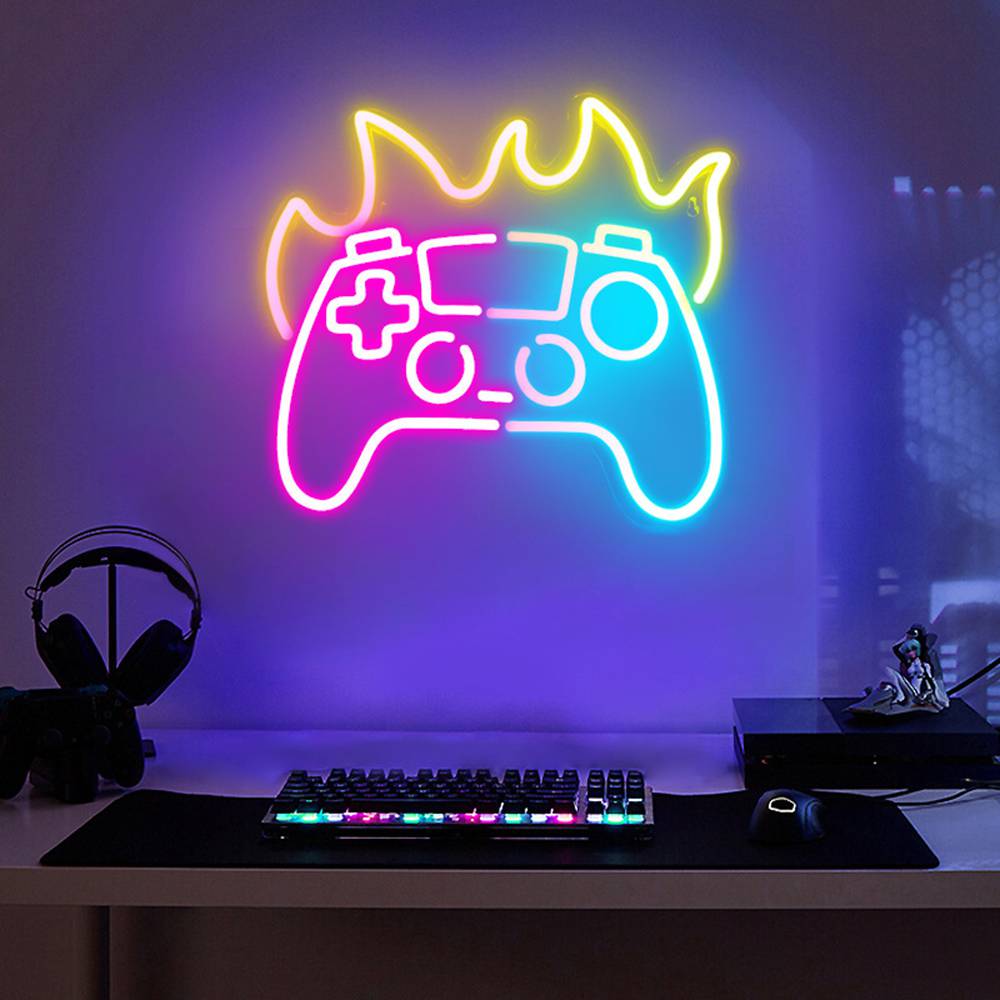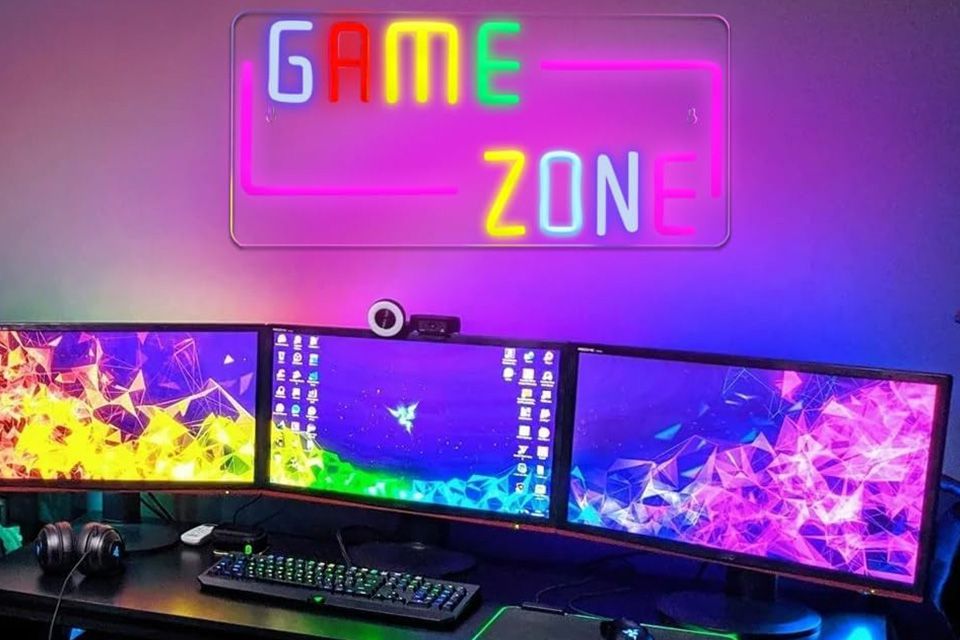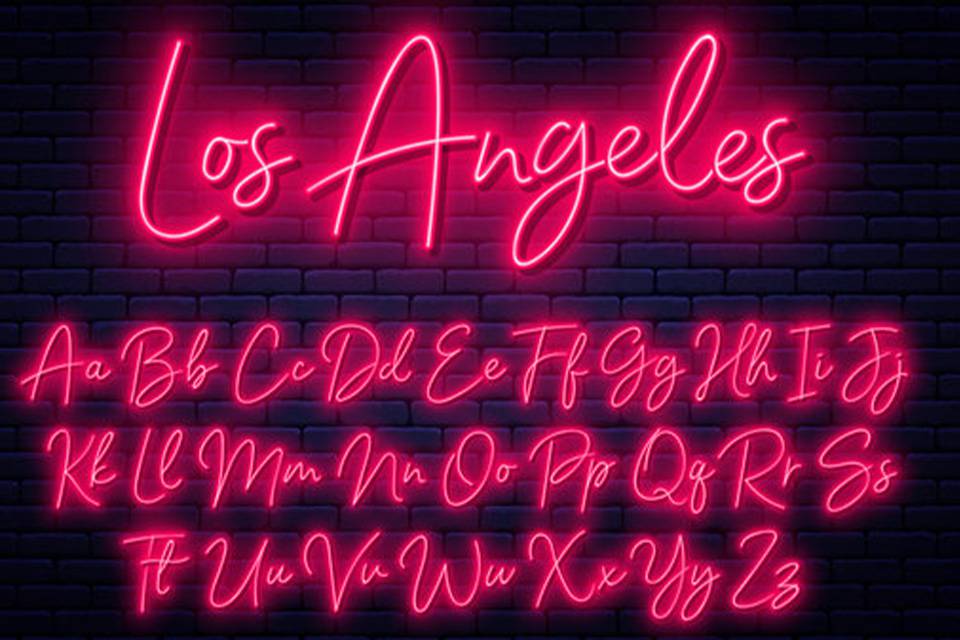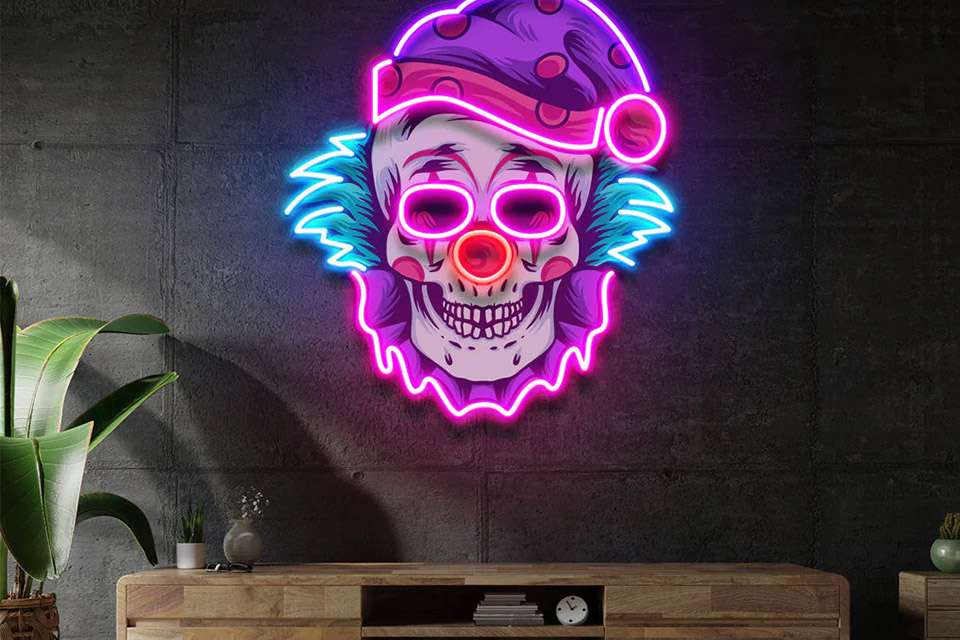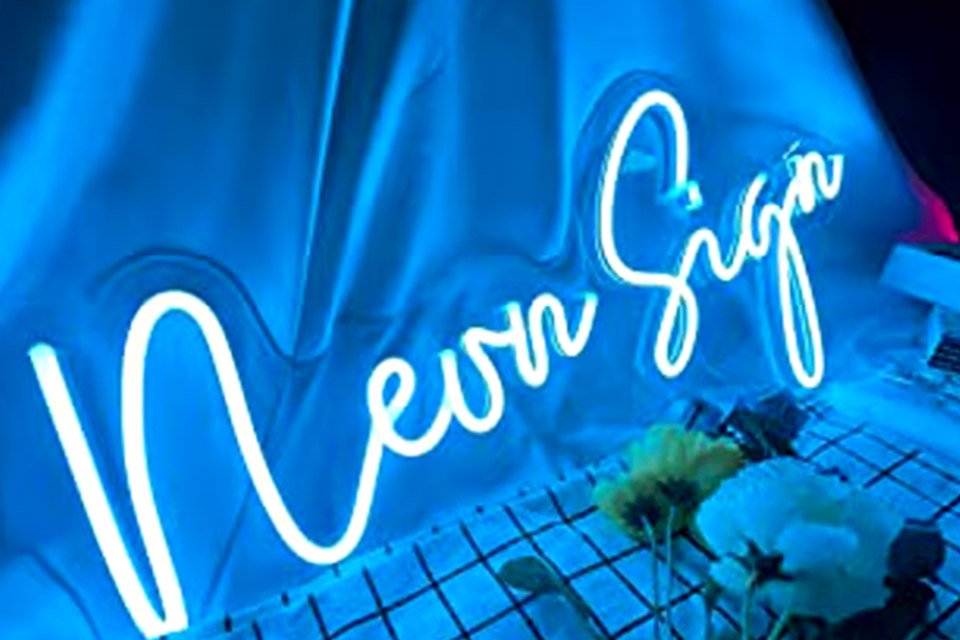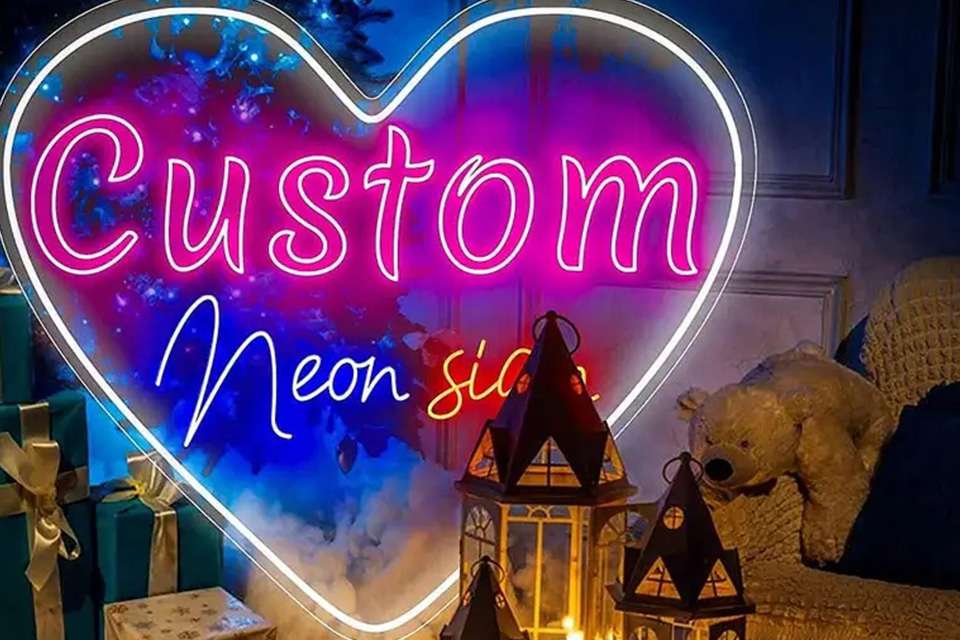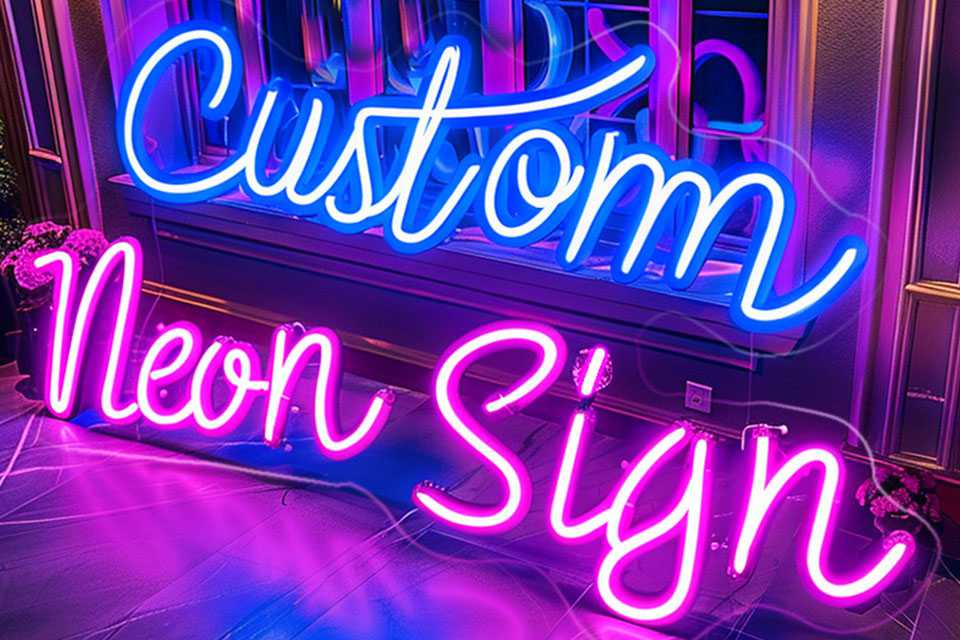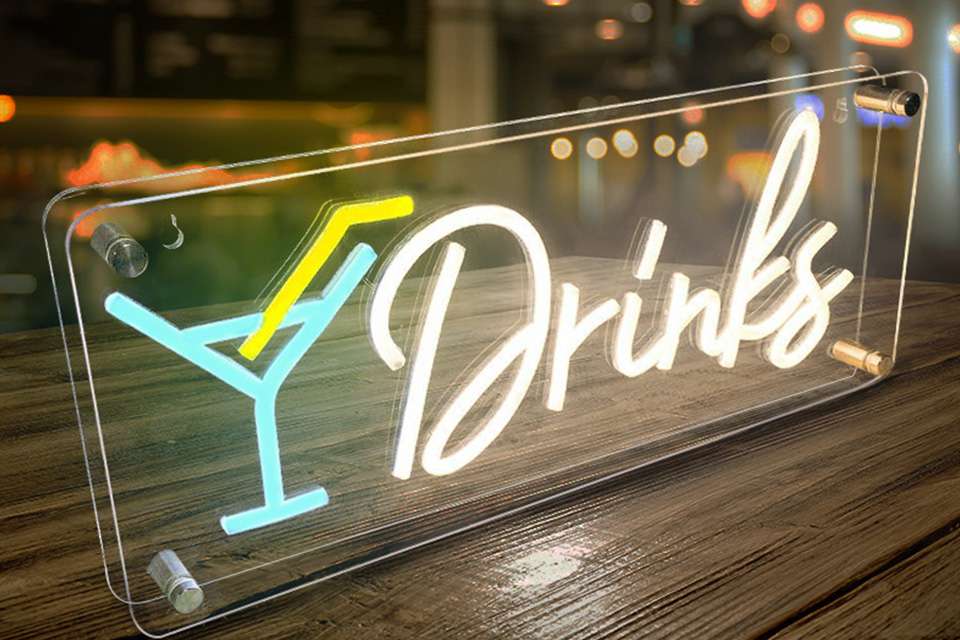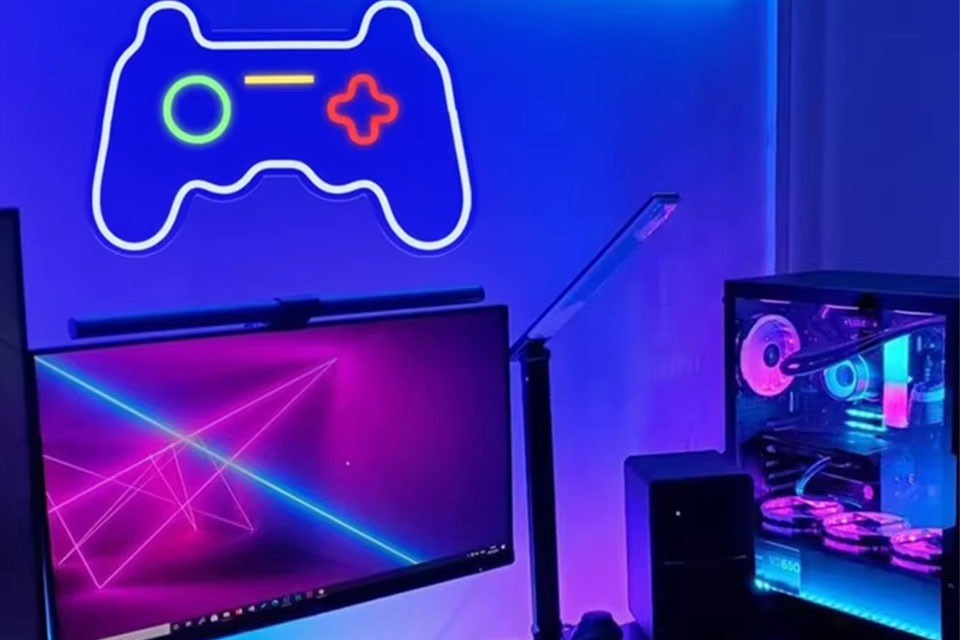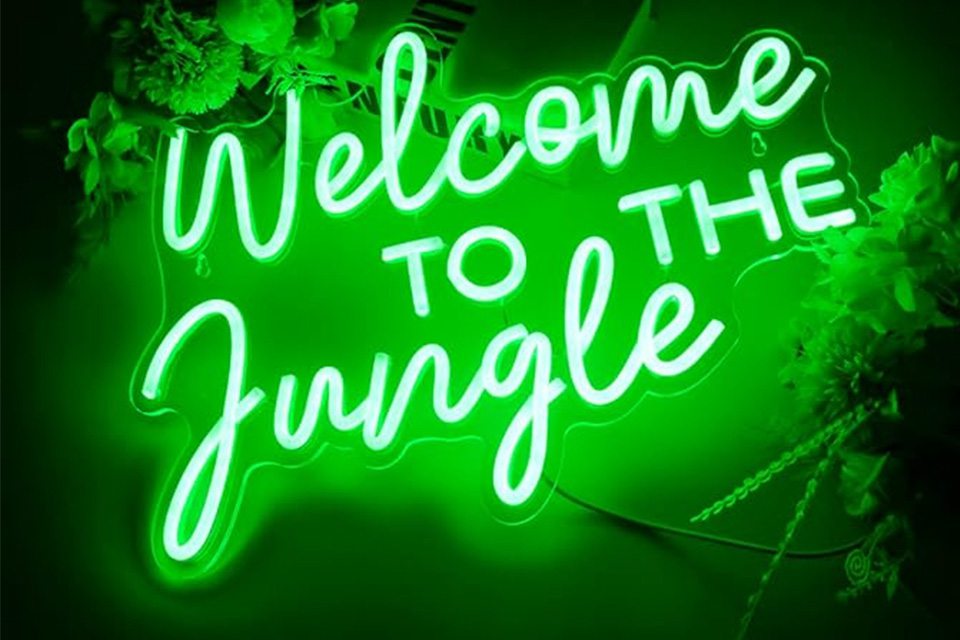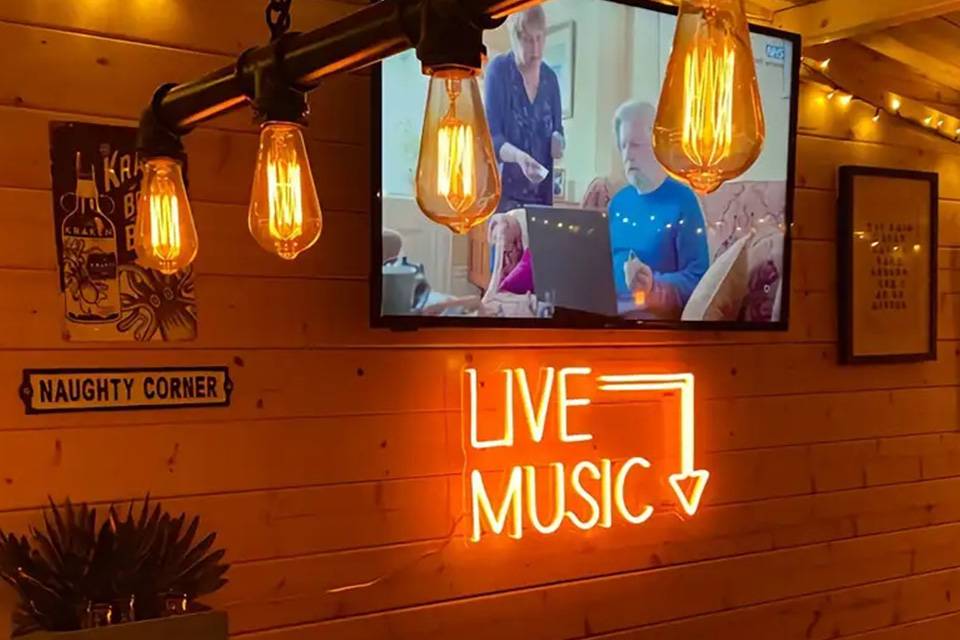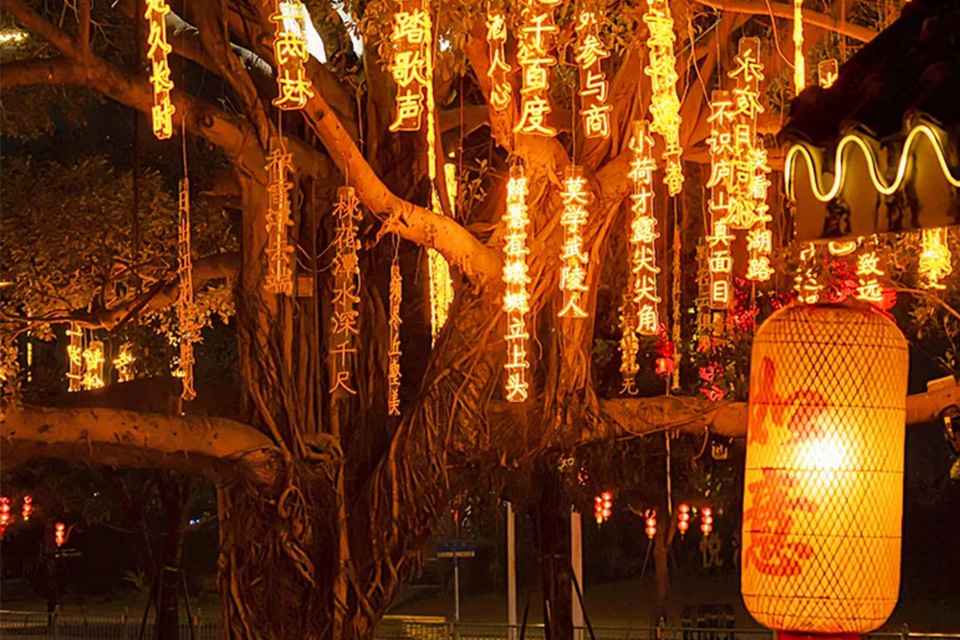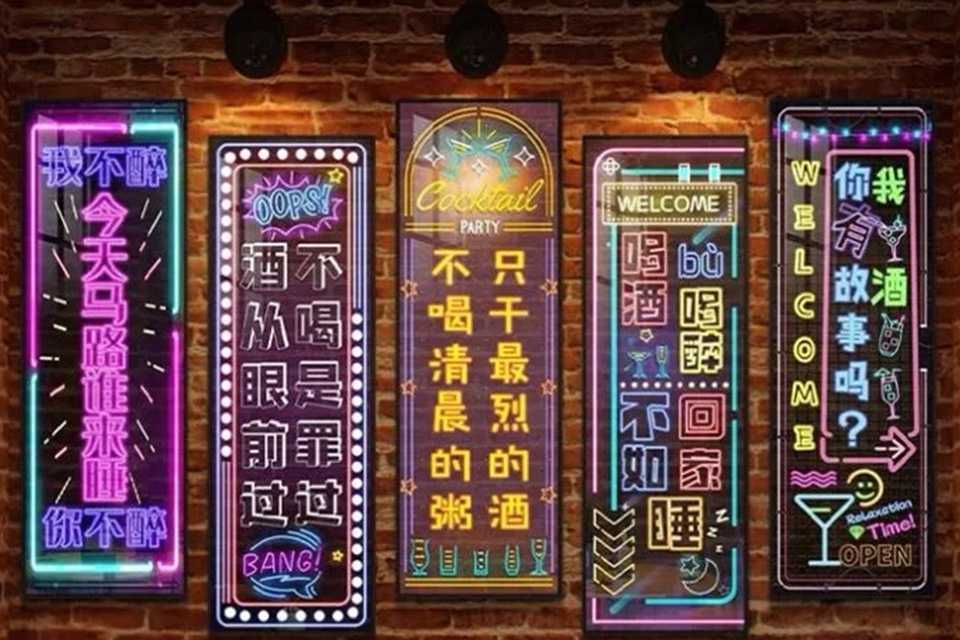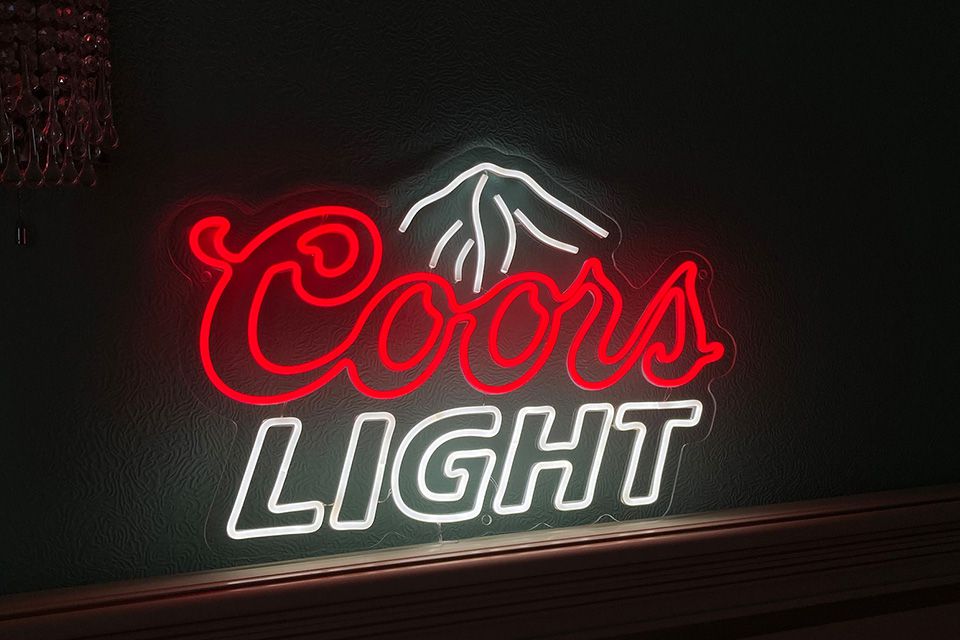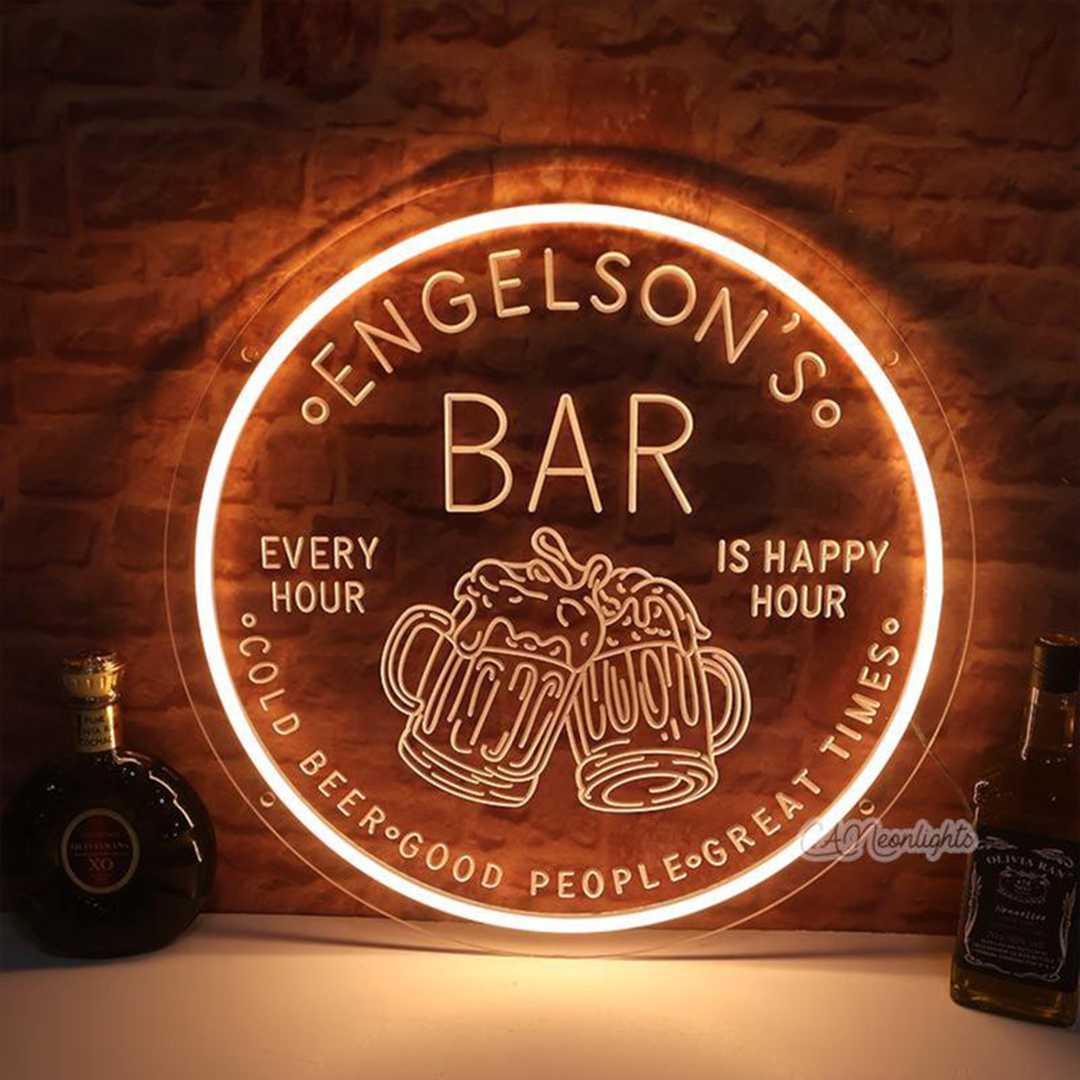
LED Neon Signs are Eco-Friendly: A Big Impact
Table of Contents
This article explores the environmental impact of neon signs, with a particular focus on comparing traditional gas neon signs with modern LED neon signs. We’ll examine their energy consumption, lifespan, and overall sustainability, demonstrating why choosing LED neon signs is a more environmentally friendly choice for both businesses and individuals. Whether you’re considering a custom neon sign for your storefront, home decor, or special event, this article is worth reading. It provides a comprehensive guide to understanding the environmental impact of neon signs and making informed decisions that align with your values and contribute to a more sustainable future. It will help you decide if you should switch to environmentally friendly LED signs.
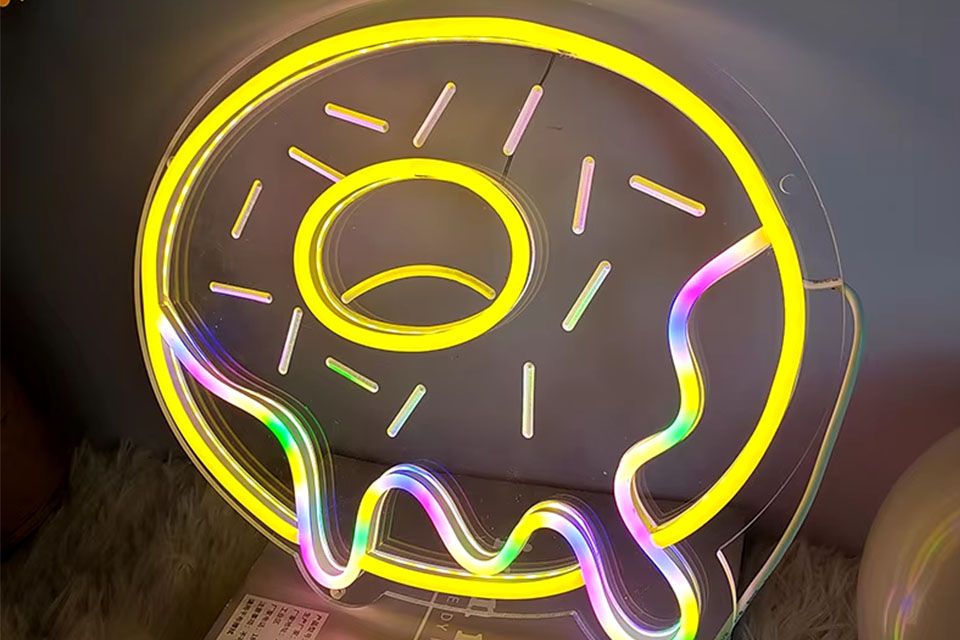
What is the Environmental Impact of Traditional Neon Signs?
Traditional neon signs, while visually appealing, have a significant environmental impact. Traditional neon signs work by utilizing a glass tube filled with neon gas or other gases like neon or argon, which emit light when an electric current passes through them. The production and operation of these signs contribute to several environmental concerns. Also, traditional neon signs are not as durable as LED neon signs.
Firstly, traditional neon signs are notorious for their high energy consumption. They require high voltage to operate, typically around 15,000 volts, and consume a significant amount of electricity compared to more modern lighting options. Secondly, traditional neon signs often contain small amounts of mercury, a toxic heavy metal, which can be harmful to the environment if not disposed of properly. This is especially true for broken signs. Thirdly, the lifespan of traditional neon lights is relatively short compared to newer technologies, leading to more frequent replacements and increased waste. There are many things that make old neon signs not very environmentally friendly.
How Do LED Neon Signs Compare to Traditional Neon Signs?
LED neon signs offer a more environmentally friendly alternative to traditional neon signs. LED neon signs utilize light-emitting diodes (LEDs) encased in a flexible, durable material like neon flex or led neon flex, mimicking the look of traditional glass neon but with significant improvements in energy efficiency, lifespan, and safety. Led neon signs offer many advantages.
LED neon signs consume significantly less energy than traditional neon signs. They typically operate on low voltage (12V or 24V) and use up to 80% less energy, making them a much more sustainable choice. LED neon signs also have a much longer lifespan, lasting up to 50,000 hours or more compared to around 10,000 hours for traditional neon signs. This extended lifespan reduces the frequency of replacements, minimizing waste and conserving resources. Switching to led neon signs is a great way to reduce your impact on the environment.
Are LED Neon Signs Energy-Efficient?
Yes, LED neon signs are highly energy-efficient. LED technology is known for its exceptional energy efficiency, converting a much higher percentage of electrical energy into light compared to traditional lighting sources. LED neon signs consume a fraction of the energy of gas neon signs, typically using around 20% of the electricity that a comparable traditional neon sign would consume. This makes led lights a much better choice for the environment.
The energy efficiency of LED neon signs translates to significant cost savings on electricity bills, making them an attractive option for businesses and homeowners alike. Moreover, the lower energy consumption reduces the overall carbon footprint associated with lighting, contributing to a more sustainable environment. Energy-efficient neon light signs are a great way to reduce your environmental impact. It is also a good idea to make led signs instead of traditional ones if you want to be more eco-friendly.
What is the Lifespan of LED Neon Signs and Why Does it Matter?
LED neon signs are known for their impressive lifespan. A typical LED neon sign can last up to 50,000 hours or even longer, while traditional neon signs have an average lifespan of around 10,000 hours. This means that LED neon signs can last five times longer than traditional neon signs, or even more. The lifespan of neon signs is very important, and it is one of the main reasons why led neon signs are becoming more popular.
The extended lifespan of LED neon signs is not only convenient but also environmentally significant. A longer lifespan means less frequent replacements, which in turn reduces waste and conserves resources used in manufacturing. Choosing LED neon signs translates to a lower environmental impact over the long term, making them a more sustainable choice compared to neon. The durability of led signs is much greater.
How Can Businesses Reduce Their Environmental Impact with Neon Signs?
Businesses can significantly reduce their environmental impact by switching to LED neon signs. Choosing LED neon signs for storefront displays, interior decor, and branding elements is a simple yet effective way to decrease energy consumption and minimize waste. Also, neon signs are durable, so they won’t have to be replaced as often. By opting for energy-efficient LED neon lights, businesses can demonstrate their commitment to sustainability and appeal to environmentally conscious consumers.
In addition to choosing LED neon, businesses can further reduce their impact by selecting custom neon signs that are appropriately sized and designed for their specific needs. Using a dimmer switch or timer can also help conserve energy by reducing the brightness or limiting the operating hours of the neon sign. Also, investing in led signs is a good way to save money in the long run.
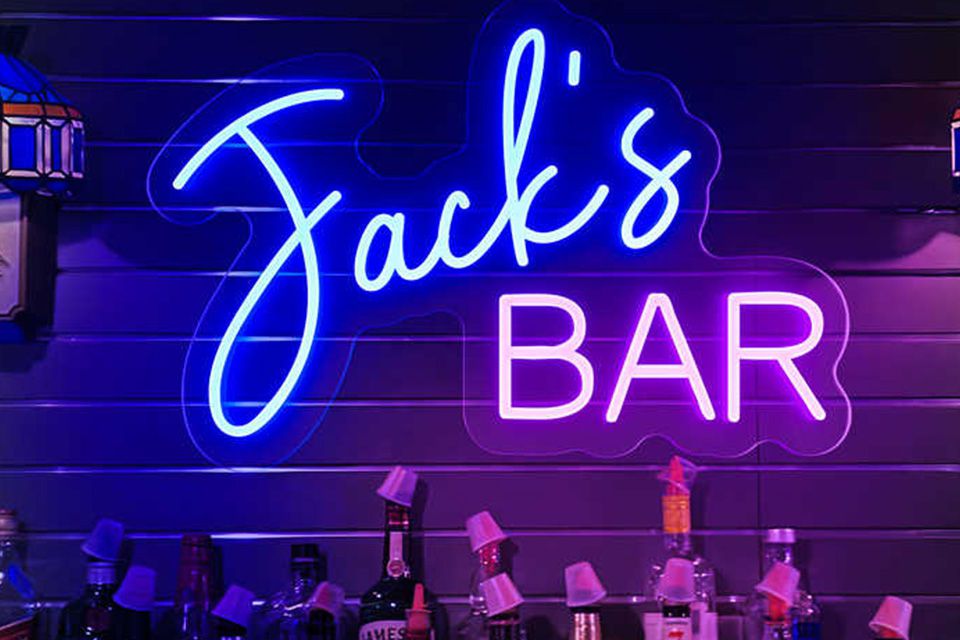
Are Custom Neon Signs More Sustainable?
Custom neon signs can be a more sustainable option, especially when made with LED neon technology. Custom LED neon signs allow businesses and individuals to create designs that are tailored to their specific needs, potentially reducing the overall size and material usage compared to using multiple pre-made signs. You can make custom neon signs that are specifically designed to use as little energy as possible.
Moreover, working with a reputable neon sign maker that prioritizes sustainability can ensure that your custom neon sign is produced using eco-friendly materials and practices. This may include using recycled or recyclable materials for the backing, opting for LED neon flex made with non-toxic materials, and minimizing waste during the production process. Custom neon signs can also be made to be more durable, which further reduces their environmental impact.
What is the Role of Neon Sign Makers in Promoting Sustainability?
Neon sign makers have a crucial role to play in promoting sustainability within the industry. By embracing modern LED technology and offering environmentally friendly LED neon signs, sign makers can help businesses and individuals reduce their environmental footprint. They can also educate their customers about the benefits of led neon vs traditional neon, and help them switch to led neon.
Neon sign makers can also adopt sustainable practices in their own operations. This might involve minimizing waste during production, using recycled or recyclable materials whenever possible, and optimizing their energy usage. By prioritizing sustainability, neon sign makers can contribute to a more environmentally responsible industry and help their customers make more eco-conscious choices. They can also promote the use of LED neon lights instead of traditional neon lights.
How to Dispose of Neon Signs Responsibly?
The proper disposal of neon signs is crucial for minimizing their environmental impact. Traditional neon signs often contain small quantities of mercury, a toxic heavy metal that can contaminate soil and water if not handled correctly. Signs may also contain other harmful substances. Therefore, it’s essential to dispose of old neon signs through designated recycling programs or hazardous waste facilities. Many cities have specific guidelines for the disposal of neon signs, so it is a good idea to check with your local authorities.
LED neon signs, while generally safer, still contain electronic components that should be recycled rather than thrown in the trash. Many electronic waste recycling programs accept LED neon signs. By responsibly disposing of both traditional and LED neon signs, we can prevent harmful materials from entering the environment and conserve valuable resources through recycling. You should always dispose of your signs responsibly, to minimize their impact on the environment.
What are the Safety Considerations for LED Neon Signs?
LED neon signs are generally considered safer than traditional neon signs. They operate at low voltages, typically 12V or 24V, which significantly reduces the risk of electric shock. LED neon signs also generate very little heat, making them safe to touch and reducing the risk of fire. This makes led signs a much safer alternative.
Furthermore, LED neon signs do not contain mercury or other harmful gases found in traditional neon signs. This eliminates the risk of exposure to these toxic substances in case of breakage. The durable and shatter-resistant nature of LED neon further enhances their safety, making them a suitable choice for various environments, including homes, businesses, and public spaces. However, it is still important to handle them with care, and follow the manufacturer’s instructions.
What is the Future of Sustainable Neon Signage?
The future of neon signage is undoubtedly linked to sustainability. As modern LED technology continues to advance, we can expect even more energy-efficient and eco-friendly LED neon signs to become available. Innovations in materials science may also lead to the development of more sustainable alternatives for the backing and casing of neon signs. Some companies are already using recycled materials to make their signs.
There is a growing trend towards using neon signs in combination with other technologies, such as solar power, to further reduce their environmental impact. We may also see more custom neon signs designed for specific purposes, such as promoting environmental awareness or supporting social causes. The neon sign industry is evolving rapidly, and sustainability is likely to be a key driver of innovation in the years to come. With the right marketing, you can make your business grow very quickly.

Summary
Here are 10 key takeaways about the environmental impact of neon signs:
- Traditional neon signs have a higher environmental impact due to their high energy consumption, use of mercury, and shorter lifespan.
- LED neon signs are a more sustainable alternative, offering significant energy savings, longer lifespan, and enhanced safety.
- LED neon signs consume up to 80% less energy than traditional neon signs, making them more energy-efficient.
- The extended lifespan of LED neon signs (up to 50,000 hours or more) reduces waste and conserves resources.
- Businesses can reduce their environmental impact by switching to LED neon signs for their neon signage needs.
- Custom neon signs can be designed with sustainability in mind, using eco-friendly materials and practices.
- Neon sign makers have a role to play in promoting sustainability by offering LED neon options and adopting environmentally responsible practices.
- Proper disposal of neon signs, especially traditional neon signs containing mercury, is crucial for minimizing environmental harm.
- LED neon signs are generally safer than traditional neon signs due to their low voltage, minimal heat generation, and lack of mercury.
- The future of neon signage will likely involve further advancements in LED technology, increased use of sustainable materials, and integration with renewable energy sources.

